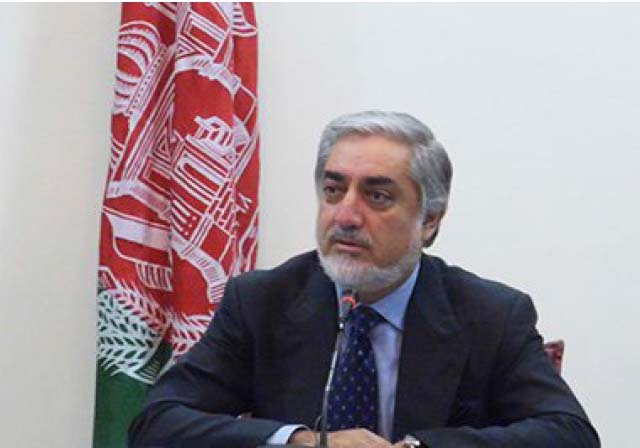KABUL - Afghan Chief Executive Abdullah Abdullah on Thursday reaffirmed his promise to bring about necessary reforms in the nation's electoral system - days after the Wolesi Jirga (Lower House of Parliament) rejected a presidential decree on the amendment of electoral laws.
Speaking at a press conference in Kabul after returning from a three-day tour to Iran, Abdullah vowed that parliamentary and district council elections will be organized under the leadership of the new election commissioners who are expected to be appointed soon for the two election management bodies - the Independent Election Commission of Afghanistan (IEC) and the Electoral Complaints Commission (ECC).
"Electoral reforms is a must, the elections will be held under the supervision of a new independent election commission. There is no way the people of Afghanistan must once again experience the bitter events [of elections in 2014]. Reform is an important demand of the people of Afghanistan and we are determined to address this demand," Abdullah said.
He said the National Unity Government is determined to implement necessary reforms in the election system.
As hopes for electoral reform gathers momentum, members of parliament's legal and judicial commission said there are no political or legal obstructions in the way of delaying the process and assured the public the appointment of new IEC and ECC commissioners would be carried out.
Reacting to parliament's refusal to accept the presidential decree on electoral reforms, the commission rebuked the move taken by the lawmakers, arguing that it came against the will of the nation and would likely harm the initiatives to reform the law.
Referring to parliament's move to reject a presidential legislative order, the commission said the move was against the will of the Afghan people.
"We are on our way to winter vacations, the president of Afghanistan may once again use the opportunity and issue a new decree to continue with the reform process. The third issue is that the president of Afghanistan may seek help from the body that is tasked to interpret the implementation of the constitution to resolve the matter," head of parliament's legal commission Mohammad Abdoh said.
Abdoh made it clear that the elections will not be conducted in the presence of the current IEC and ECC commissioners, stressing that above all, the international community is also not prepared to endorse elections held under the present structure.
"In case the present commissioners of the election commissions still continue their jobs and they do not surrender to reforms, then all must know that we will not be able to conduct the parliamentary and district council elections, because the international community will not pay the necessary funds we require to hold elections," he said.
However, many people believe that bringing about reforms can help reinstall public trust.
"Elections need to be held and democracy must continue. For that, implementation of reforms is a must. We can resort to political and legal efforts to get the job done. I think the issue is not that complicated and a settlement to the matter can be found," former IEC chief Fazel Ahmad Manavi said.
"To revive trust in the process we must bring about reforms. The trust of the nation must be revived in the process. If people do not go to the polls, questions will be raised on the credibility of the process, therefore we are determined to continue our struggle for the sake of the credibility of the process," former Jihadi figure Sayed Ahmad Gillani said.
Bringing about key reforms in Afghanistan's election law is among the top commitments made by government leaders. (Tolonews)

